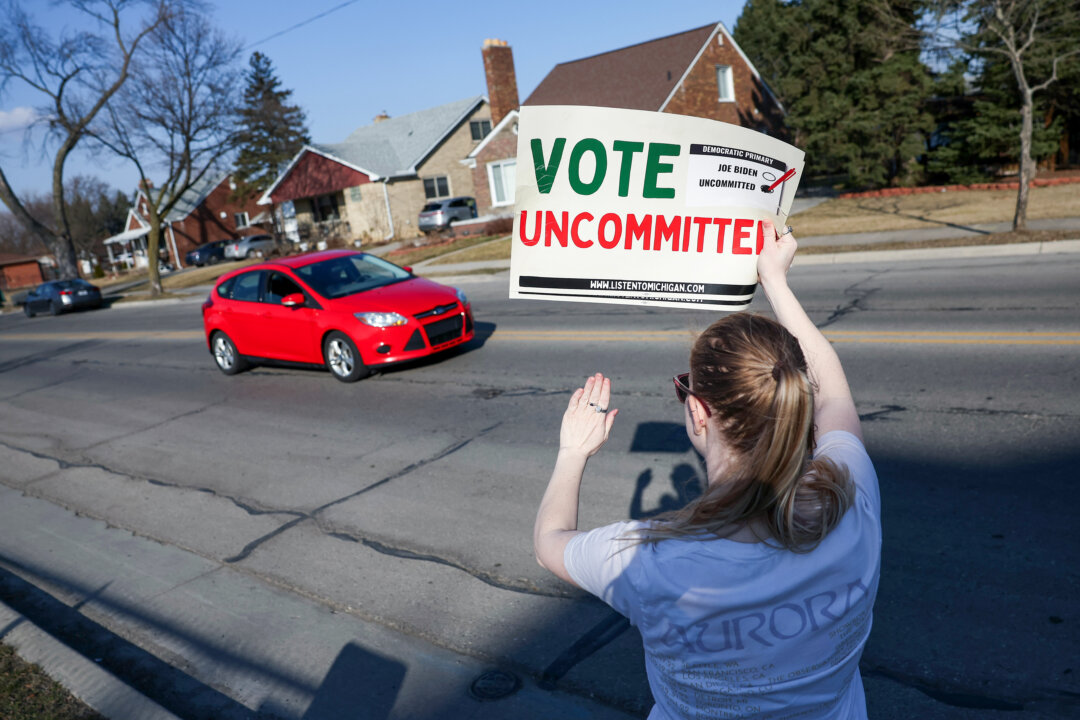
By Stephen Xenakis, Morning Call guest columnist I am a physician and retired Army brigadier general who has been helping soldiers and their families for over 50 years. I am also the son of a career Air Force officer who served in World War II, Korea and Vietnam. The consequences of war have been “up close and personal,” and I have witnessed firsthand the devastating impact on our military personnel and veterans.
The men and women who serve our country often return from the battlefield with mental and physical injuries, and invisible wounds. We are obligated to care for them. During my decades of service, I have seen a clear divide in how different administrations approach the health care of our military and veterans.

The comparison between former President Donald Trump’s record and the efforts of President Joe Biden and Vice President Kamala Harris could not be starker. Both administrations have acknowledged the crisis of suicide within the military and veteran communities, but the empathy and commitment could not be have sharper contrasts. Watch what Trump does, not just what he says.
Trump’s actions and words should not be ignored — reportedly calling soldiers “losers” and “suckers,” demeaning men and women with post-traumatic stress disorder, and his recent antics at Arlington National Cemetery. Lots of rhetoric about how he would care for veterans, but a noticeable lack of concrete action. His comments are a slap in the face to those who have already sacrificed so much.
Trump spoke about his admiration for the military and “his generals,” but his policies failed to meaningfully support the mental health needs of our service members. He blew off the blast injuries to U.S.
troops from an Iranian missile attack in 2020. While he signed the Veteran’s Comprehensive Prevention, Access to Care, and Treatment Act of 2020, which aimed to improve mental health care for veterans, he underfunded the programs and failed to give the necessary follow-through to make an impact. The Biden administration, with Harris as a strong advocate for mental health, has tackled mental health, suicide and physical health with empathy and action.
I worked with Biden’s team on suicide, gun violence and mental health for many years. In an early action, the Biden administration signed an executive order to address veteran suicide prevention with measures to enhance crisis services, improve access to mental health care, and expand the capacity of the Veterans Affairs system to meet the needs of those struggling with mental health. The administration also prioritized the expansion of telehealth services, recognizing that access to care is a significant barrier for many veterans, particularly in rural areas.
Furthermore, Harris has been a vocal advocate for mental health, emphasizing the need for a holistic approach that includes addressing the social determinants of health, such as housing, employment and community support. The Biden-Harris administration’s focus on a whole-of-government approach to mental health care, which includes collaboration between the Department of Defense, the VA and other federal agencies, reflects a genuine commitment to tackling the issue at its root. Just last month, the Department of Defense implemented across-the-board testing for brain injury that aggravates suicidal ideation.
What sets the Biden-Harris administration apart is not just its policies but the concern and empathy that energizes action. As a doctor and a commander, I know the value of empathy and genuine concern for caring for patients. Veterans who feel understood and supported are more likely to engage in treatment and achieve better outcomes.
Many patients who die by suicide do not feel that anyone cares. Care and concern mean more to them than any drug or therapy that they get. This is why it is so important that our leaders implement effective policies and demonstrate genuine care and concern for those men and women who are struggling.
The reality is that suicide among military personnel and veterans is complex and requires a multifaceted approach. It is not enough to simply talk about the problem or pass legislation; we need sustained investment in mental health care, better access to services and a culture that destigmatizes seeking help. The Biden administration’s commitment to these principles offers hope for a future where fewer service members and veterans feel that suicide is their only option.
It is essential that we hold our leaders accountable for their words and actions. We must demand that they not only speak with empathy but also act with urgency. Our service members and veterans deserve nothing less.
As someone who has dedicated their career to treating those who have served our country, I am hopeful that we are finally moving in the right direction. But the work is far from over, and it will require all of us — policymakers, medical providers and the public — to continue fighting for the mental health care our military personnel and veterans need and deserve. Dr.
Stephen Xenakis is a retired brigadier general who served 28 years in the Army as a medical corps officer and a board member of Center for Ethics and the Rule of Law at the University of Pennsylvania. He has been a senior adviser to the Department of Defense on care and support for service members and their families..














